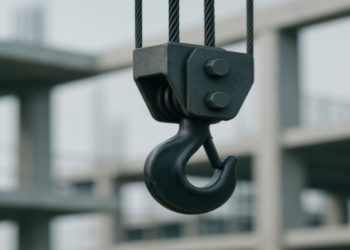The foundation of NEC contracts is the parties’ cooperation and respect for one another. Conflicts should be rare if all parties collaborate for the project’s success and show respect for one another. However, in practice, disagreements in NEC contracts can and do arise for various reasons, including business constraints, inexperience, and human mistakes.
Thankfully, most construction disputes may be settled amicably and economically by the parties involved or via adjudication. This article discusses some causes of disagreements and how to prevent them.
Badly drafted contracts
Never has the adage “failure to prepare is preparation for failure” been truer than it is when it comes to the writing and reviewing of NEC contracts. Thus, it is imperative that all NEC clients, contractors, and their advisers give the contract formulation enough consideration and attention.
First and foremost, it is significant to make sure the scope—the works information in nec3 option c is correct and indicative of the work to be done. Subsequently, a thorough analysis of the limitations imposed on that task must be conducted, including but not limited to other parties present in the work area, statutory body works, and schedule limits.
Inability to adhere to protocols
NEC contracts are procedural. Hence, the parties involved must perform in a certain manner and adhere to predetermined procedures.
Contract management is made easier for many NEC users by the computer-based technologies. Because NEC protocols are integrated into the program, users may receive notifications and reminders when certain actions are needed. It is important to make sure that the NEC processes are meticulously followed in the absence of such a system.
When parties and individuals attempt to use their expertise and understanding to contracts other than NEC, many disagreements result. Even though they think they have followed the best practices in the industry, they frequently deviate from what the NEC requires. As a result, NEC users must be fully aware of what the contract requires and apply that understanding to their initiatives.
Absence of NEC expertise
In addition to the numerous bespoke contract forms that masquerade as standard forms but are not, there are standard types of contracts in use today. Therefore, those in the construction industry who operate on the NEC contracts must be well *aware of how the NEC differs from other standard forms and the multiple revised versions.
But it is not that simple so to speak. They could be working on a normal or modified NEC project one day and overseeing an altered JCT contract the next. This calls for some dexterity. The processes, notification obligations, and contractual structure of NEC are distinct from those of JCT or any other form, altered or not.
Every individual working on an NEC contract must comprehend the terms of the agreement and the implications of any changes before appropriately implementing them.
Every NEC contract revolves around the program crucial to effective contract management. The process of programming is defined in two steps.
When anything happens that causes a sudden delay in the construction process but the parties cannot agree on or determine how long the delay will last, disputes can result. Now, disputes can arise due to several reasons and hence it is essential that all parties involved in the project are informed of *any discrepancy. Although both parties should not underestimate the programming resources necessary to achieve this, an acceptable program that is updated regularly will lessen, if not eliminate, the chance of dispute on delay times.
Not providing the necessary “notice”
Events about compensation that do not stem from directives or notifications issued by a project manager, supervisor, or contractor in a subcontract, nor from the issuance of a certificate or modification of a decision, must be reported by the contractor (or subcontractor). Under the standard form, contractors have a time period of about eight weeks from the time they become aware of the occurrence to notify the parties involved.
If not done, there may be a time bar that will prevent the contractor (or subcontractor) from changing the rates, the completion date, or any important date. It is no surprise that this might result in disagreement, particularly in those *cases where there may have been legitimate mitigating factors for non-compliance. If a contractor (or subcontractor) is required to provide notice, it needs to do so promptly.
Conclusion
To conclude we can say that disagreements in the construction work arising from nec option c contracts can arise in several ways, but they can usually be settled amicably or via adjudication without any stringent legal action. In this respect, both Clients and contractors should exercise greater caution in the contract preparation process than they ordinarily may seem appropriate from the beginning of any NEC projects.
David Prior
David Prior is the editor of Today News, responsible for the overall editorial strategy. He is an NCTJ-qualified journalist with over 20 years’ experience, and is also editor of the award-winning hyperlocal news title Altrincham Today. His LinkedIn profile is here.













































































